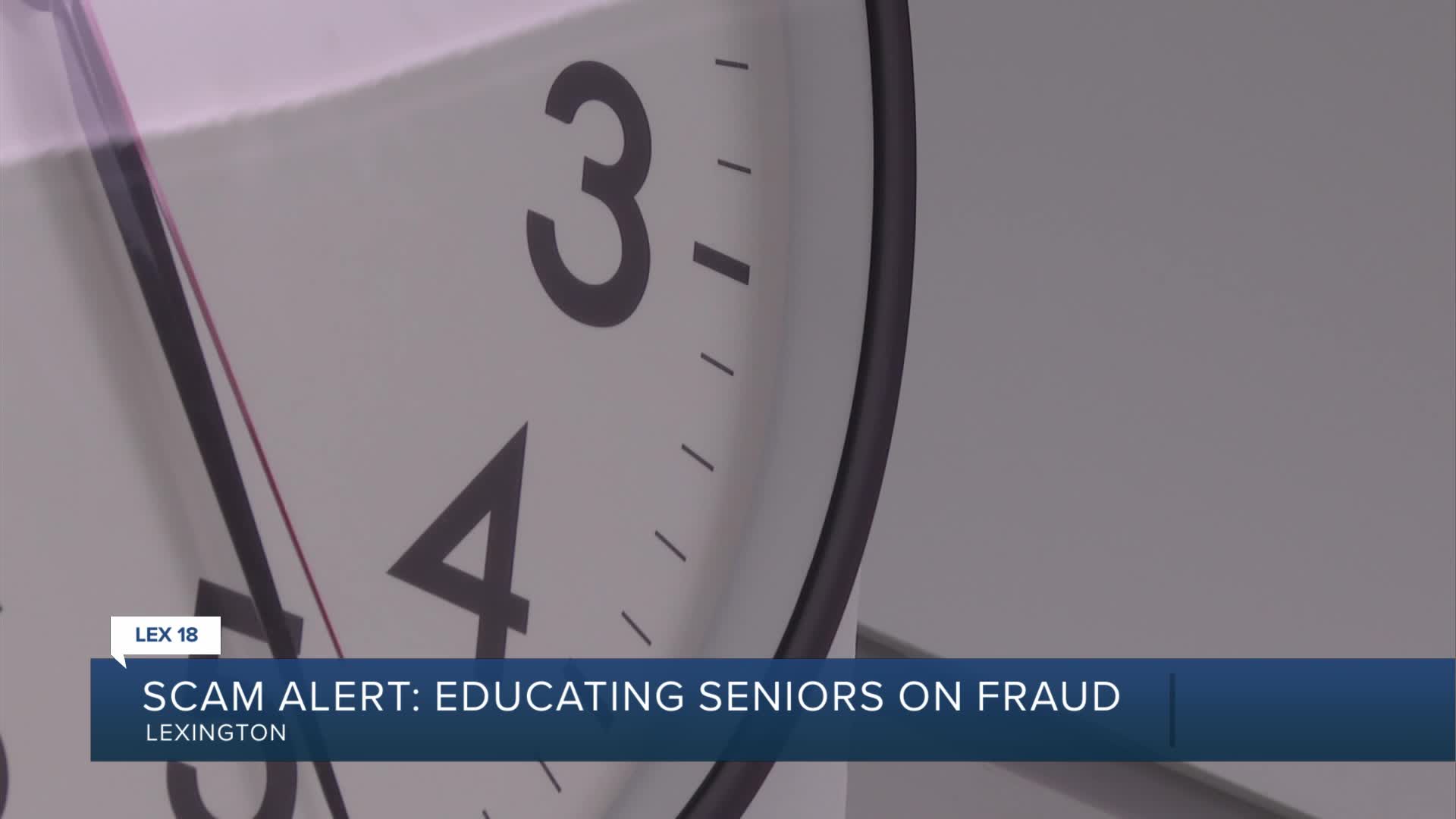LEXINGTON, Ky. (LEX 18) — Kentuckians lost $72 million to scams last year, according to federal data, with the majority of reported victims over 60 years old.
That's why Chase partnered with the Lexington Senior Center for an educational seminar to help protect vulnerable community members from fraud.
Susan Higdon, a senior who attended the seminar, knows firsthand how sophisticated these scams can be. She nearly became a victim of Medicare fraud herself.
"It was so scary because they had the information, they had my name, they had the date, they had the test," Higdon said.
The experience left her shaken about scammers.
"I thought, wow, Medicare can do it. Anything can do it," Higdon said.
Learning more about scams brought her to the Lexington Senior Center Tuesday morning.
"You get phone scams all the time. You get email scams all the time, and if you're not aware and have some knowledge of what to look for, then you're lost," she said.
Chase representatives say helping community members improve their financial health is part of their mission.
"So hopefully we can get them ahead of the game and maybe not be able to prevent everything, but if we can actually stop some of it, then we've done our job," said Lexington community manager Jennifer Hicks.
The timing is especially important with the holidays approaching.
"We do see scams throughout the whole year, but our 4th quarter around the holidays, that's where they really ramp up," Hicks said. "People are doing more online shopping or more Christmas shopping."
Experts say scammers are always updating their methods, hoping to find unsuspecting victims. That can make it hard to keep up.
"Just on the surface of scams that we're seeing, it changes daily," said Sgt. Ben Baker with the Lexington Police Department.
He says the agency currently receives many reports of phone and gift card scams. His advice: never rush to send anyone money.
"The scammer is gonna create a false sense of urgency to try to get you to do something without thinking about what you're doing. Slow down and have a trusted person that you can talk to. If you think something's not right, it's probably not, and start asking questions," Baker said.
Those are questions Higdon herself has started asking as she encourages others to learn about scams, too.
"You can't go wrong. You can only come out a winner because it's a win-win for everybody that attends," Higdon said.
If you were scammed or think you saw a scam, report it to the Federal Trade Commission at reportfraud.ftc.gov.
You can also:
- Block unwanted calls and text messages
- Refuse to give out personal or financial information in response to a request you didn't expect
- Resist the pressure to act immediately
- Know how scammers tell you to pay (cryptocurrency, wire transfer service, payment app or gift card)





